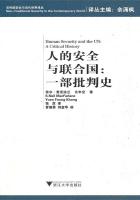"The domination of capital arose in close connection with the domination of land. Part of the agricultural serfs were transformed in the towns into craftsmen and ultimately into factory material. After the rent of land, earnings of capital developed as a second form of rent of possession" {176}.
Even if we ignore the historical inexactitude of this assertion, it nevertheless remains a mere assertion, and is restricted to assuring us over and over again of precisely what should be explained and proved. We can therefore come to no other conclusion than that Herr Dühring is incapable of answering his own question: how the competing entrepreneurs are able constantly to realise the product of labour above the natural outlays of production;that is to say, he is incapable of explaining the genesis of profit. He can only bluntly decree: earnings of capital shall be the product of force -- which, true enough, is completely in accordance with Article 2 of the Dühringian constitution of society: Force distributes. This is certainly expressed very nicely; but now "the question arises" {D. K. G. 501}: Force distributes -- what? Surely there must be something to distribute, or even the most omnipotent force, with the best will in the world, can distribute nothing. The earnings pocketed by the competing capitalists are something very tangible and solid. Force can seize them, but cannot produce them. And if Herr Dühring obstinately refuses to explain to us how force seizes the earnings of capitalists, the question of whence force takes them he meets only with silence, the silence of the grave.
Where there is nothing, the king, like any other force, loses his rights.
Out of nothing comes nothing, and certainly not profit. If capital ownership has no practical meaning, and cannot be realised, unless indirect force against human material is simultaneously embodied in it, then once again the question arises, first, how capital-wealth got this force -- a question which is not settled in the least by the couple of historical assertions cited above; secondly, how this force is transformed into an accession of capital value, into profit; and thirdly, where it obtains this profit.
From whatever side we approach Dühringian economics, we do not get one step further. For every obnoxious phenomenon -- profit, land rent, starvation wages, the enslavement of the workers -- he has only one word of explanation: force, and ever again force, and Herr Dühring's "mightier wrath" {501} finally resolves itself into wrath at force. We have seen, first, that this invocation of force is a lame subterfuge, a relegation of the problem from the sphere of economics to that of politics, which is unable to explain a single economic fact; and secondly, that it leaves unexplained the origin of force itself -- and very prudently so, for otherwise it would have to come to the conclusion that all social power and all political force have their source in economic preconditions, in the mode of production and exchange historically given for each society at each period.
But let us see whether we cannot wrest from the inexorable builder of "deeper foundations" {see D. C. 11} of political economy some further disclosures about profit. Perhaps we shall meet with success if we apply ourselves to his treatment of wages. On page 158 we find:
"Wages are the hire paid for the maintenance of labour-power, and are at first taken into consideration only as a basis for the rent of land and earnings of capital. In order to get absolute clarity as to the relationships obtaining in this field, one must conceive the rent of land, and subsequently also earnings of capital, first historically, without wages, that is to say, on the basis of slavery or serfdom... Whether it is a slave or a serf, or a wage-labourer who has to be maintained, only gives rise to a difference in the mode of charging the costs of production. In every case the net proceeds obtained by the utilisation of labour-power constitute the income of the master ... It can therefore be seen that... the chief antithesis, by virtue of which there exists on the one hand some form of rent of possession and on the other hand propertyless hired labour, is not to be found exclusively in one of its members, but always only in both at the same time."Rent of possession, however, as we learn on page 188, is a phrase which covers both land rent and earnings of capital. Further, we find on page 174:
"The characteristic feature of earnings of capital is that they are an appropriation of the most important part of the proceeds of labour-power. They cannot be conceived except in correlation with some form of directly or indirectly subjected labour."And on page 183:
Wages "are in all circumstances nothing more than the hire by means of which, generally speaking, the labourer's maintenance and possibility of procreation must be assured".
And finally, on page 195:















